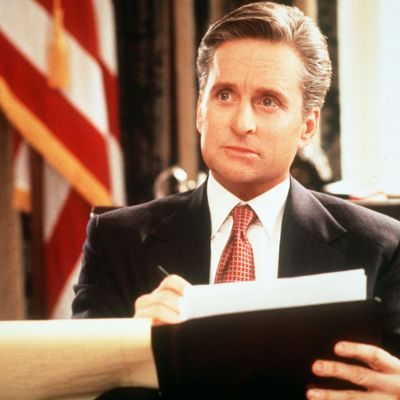
People, for the most part, don’t like stories about impersonal structural forces. They like stories about people. That’s why most coverage of national politics focuses on simple stories about a person — the president — whose behavior is held to be responsible for anything that happens, good or ill.
The failure of the gun bill offers us the latest case for presidential stories. If it had passed into law, the stories would tell us about President Obama’s brilliant speechmaking, his public passion, his tireless rounding up of votes. Instead it has failed, and we have stories about his lack of leadership, like in today’s New York Times, which leads with the news that Obama is failing to punish Alaska Senator Mark Begich for his “no” vote on background checks. Begich requested that the interior secretary travel to Alaska to explain a controversy over a road through a wildlife refuge, and the trip is happening anyway, rather than being canceled:
The trip will also reinforce for Mr. Begich and his colleagues a truth about Mr. Obama: After more than four years in the Oval Office, the president has rarely demonstrated an appetite for ruthless politics that instills fear in lawmakers. That raises a broader question: If he cannot translate the support of 90 percent of the public for background checks into a victory on Capitol Hill, what can he expect to accomplish legislatively for his remaining three and a half years in office?
Would the threat of canceling the trip have caused Begich (and six fellow senators) to reconsider, as the story implies?
Obviously, we can’t go back and re-run history and find out. We can, however, find a reasonably close approximation. During Bill Clinton’s first two terms, a Democratic senator from a red state (Richard Shelby of Alabama) defected on key votes. Clinton tried the “ruthless” approach of punishing Shelby by denying him these sorts of discretionary executive branch perks — first limiting his tickets to a ceremony honoring the Alabama football team, then threatening to move some NASA jobs out of his state. The tactic was universally seen to have backfired.
Did it really backfire? Probably not. Shelby voted the way he did because he assessed his own beliefs and interests. But that is the beauty of ignoring structural factors for stories about people: You can always tell a new one. If the president was nice, he should have been mean. If he was mean, he should have been nice. (Unless he prevailed, in which case his shrewd politicking saved the day!)
Presidential hero stories have two archetypes. One is Lyndon Johnson arm-twisting. The Times today hauls out LBJ biographer Robert Dallek to contrast Johnson’s ruthless arm-twisting with Obama’s stand-offishness. Of course, LBJ enjoyed huge majorities in both houses, along with a majority-rule Senate. When Johnson’s majority shrank following the 1966 midterms, his domestic agenda shriveled away, too, despite his presumably undiminished grasp of arm-twisting and legendarily threatening body language.
Obama faces a House controlled by far-right Republicans, and a Senate majority not sufficient to break what has become a routine supermajority requirement. And note that despite his national majority, Obama carried only 48 percent of House districts and 52 percent of the states, short of the threshold for passing laws in either chamber, which suggests that even a perfect effort to apply his popularity to any given issue is insufficient to pass a law. (National Review reporter Robert Costa points out that the sponsors of the background check law wanted Obama to stay in the background, which makes sense given the political geography.).
The second archetype comes from the Aaron Sorkin myth, a phrase I used two years ago to mock Drew Westen, who seemed to pine for a Sorkin-esque president who would deliver soaring speeches that would change everything. Maureen Dowd took the myth to the next level in her Sunday column by not merely pining away for a Sorkin-esque hero, as Westen did, but actually citing a Sorkin film:
The White House should have created a war room full of charts with the names of pols they had to capture, like they had in “The American President.” …
That’s the answer? Charts with the names of the pols they had to capture? I’m pretty sure the administration knew the names of the senators whose votes it needed. Would it really make a dramatic difference to store the information in chart form? You can’t just jot it down on a notepad? What about a high-tech method, like an iPad, or — thinking way outside the box here — a really old-school system like cuneiform tablets? As the commitments rolled in, the White House could dramatically chisel names off its tablets.
Now, surely the president’s behavior has some influence on decisions by members of Congress. Like, if Obama gave a speech that scared the absolute crap out of gun owners, portraying his proposal not as a reasonable small step but as a scary plan to “get the guns” — maybe involving some gigantically intrusive scheme involving door-to-door searches — that would obviously freak out gun owners and make things way harder.
But even the dumbest possible political strategy can look inspired if you imagine it with a skilled actor and an inspirational background score:






























